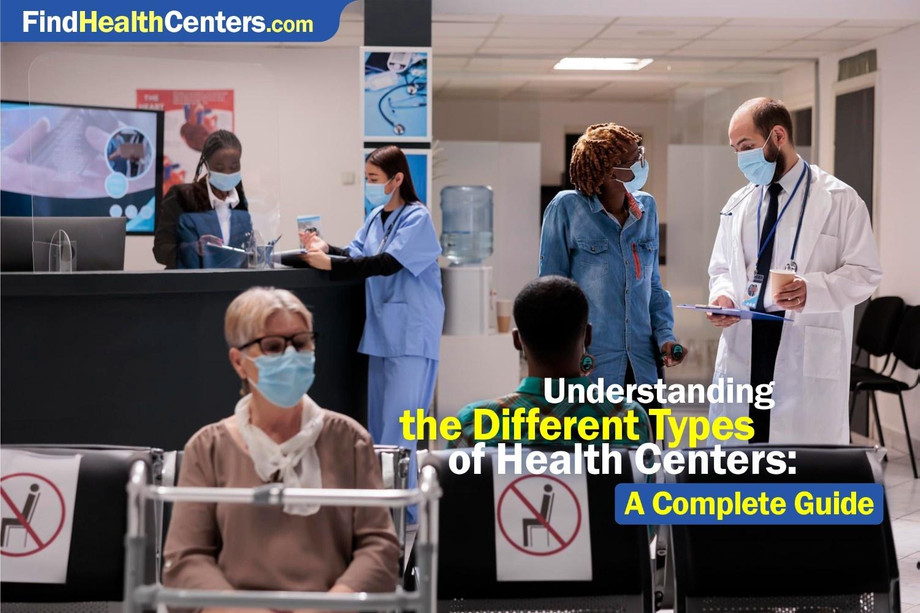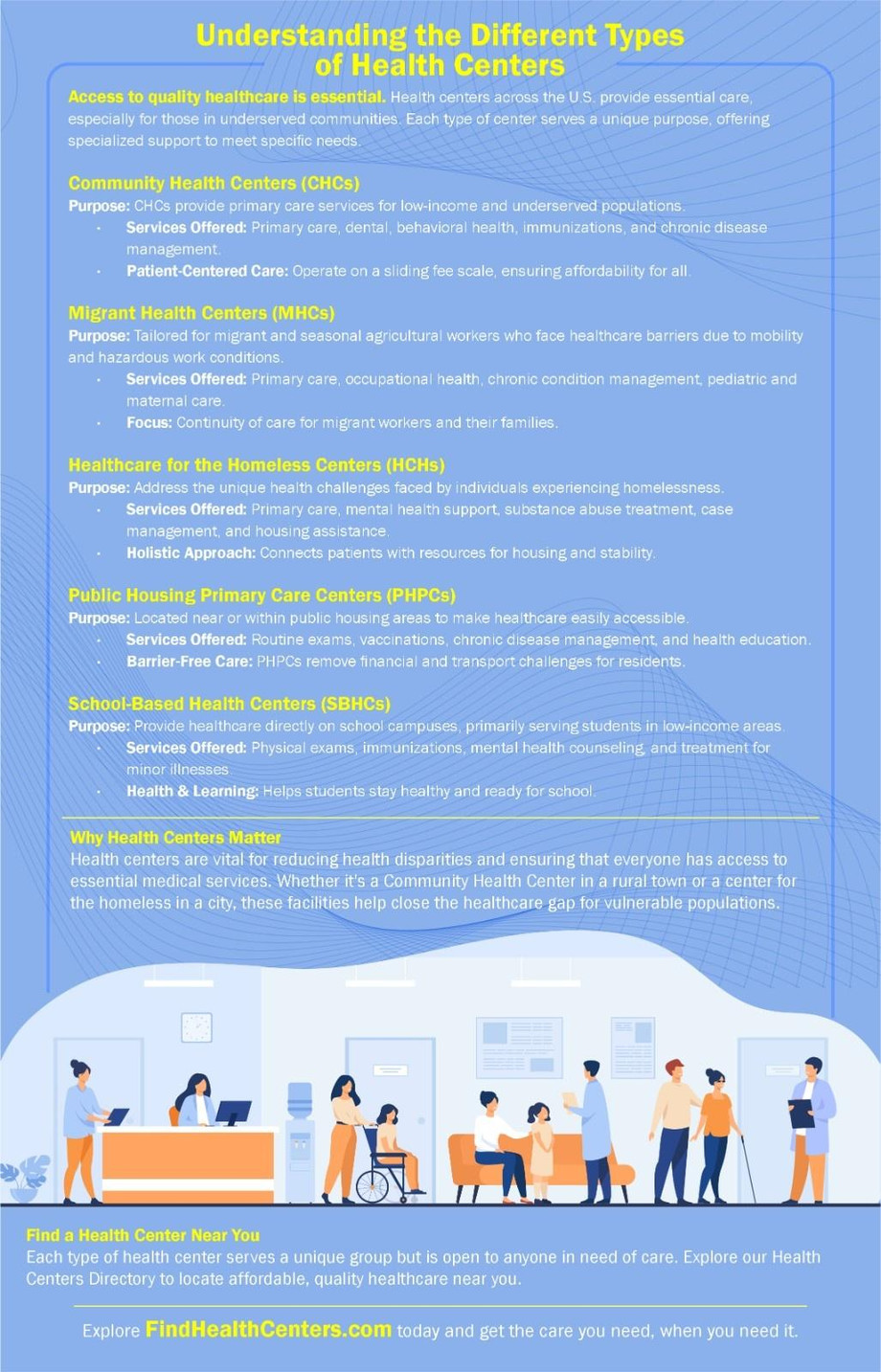Quality healthcare is a fundamental right, especially for a less privileged population. Throughout the United States, health centers are serving important roles in delivering care to populations that would otherwise lack access to medical services. Did you know that there are actually various types of health centers designed to meet various needs? Read below to see what the different types of health centers do and how they work towards improving communities' health.
Community Health Centers (CHCs)
Community Health Centers (CHCs) are likely one of the most common categories of health centers. These centers give primary, integrated care to low-income and medically underserved populations. Be it in cities or rural locations, CHCs give quality health services, even to some in health professional shortage areas (HPSAs).
Common services of CHCs include:
-
Primary care
-
Dental care
-
Mental health and substance abuse
-
Vaccinations
-
Chronic diseases management
CHCs are patient-centered, providing any patient any time with the assurance that everyone will receive care regardless of ability to pay. The majority of CHCs operate off a sliding fee scale. What patients pay depends on their income.
Migrant Health Centers (MHCs)
Migrant Health Centers (MHCs) are tailor-made services to meet the specific healthcare needs of migrant and seasonal agricultural workers. Such workers often face major health issues due to their migratory lifestyle, hazardous conditions, and lack of easy access to consistent healthcare. MHCs fill in such gaps, ensuring that the vulnerable populations get necessary healthcare.
Services offered by MHCs include:
-
Primary and preventive care
-
Occupational health services
-
Chronic condition management education
-
Pediatric and maternal care
The MHCs play an important role in providing health care to workers and their families who may often be moving between different parts of the country and need to have access to continued care.
Health Care for the Homeless Centers
Homelessness can be related to extreme challenges to health services. Health Care for the Homeless Centers (HCHs) are organized for the needs of the homeless. In addition to medical services, they provide crucial support services aimed at assisting stabilization.
Services HCHs:
-
Primary Care and Preventive Services
-
Behavioral Health Treatment
-
Case Management and Social Services
-
Housing Assistance and Benefits
HCHs represent a comprehensive, integrated model of care that addresses both physical and mental health needs while helping patients access housing and financial resources.
Public Housing Primary Care Centers (PHPCs)
Public Housing Primary Care Centers (PHPCs) are located in or around public housing developments. These centers orient to providing care near where the majority of residents live, thus increasing accessibility in terms of convenience and affordability. Situated close to where people live eliminates barriers to care and makes services accessible to them because residents do not have to travel far.
Common services available at PHPCs:
-
Routine medical examinations
-
Vaccinations
-
Follow-up management of chronic conditions
-
Health instruction
These offer an important resource in the way of providing primary care and prevention services for those living in public housing.
School-Based Health Centers (SBHCs)
School-Based Health Centers (SBHCs) have emerged as an innovative approach to bringing health care to the school. Medical, mental health, and sometimes dental services are provided in these centers to the students, staff, and the community at large. To most of the students—mostly in low-income schools—it may be the only source of health care.
Services provided at SBHCs include:
-
Physical check-ups, immunization against common contagious diseases
-
Common illnesses and injuries
-
Psychological Counseling
-
Health education
Health centers directly provide care at schools; therefore, the students are kept healthy and ready for school.
Why Health Centers Matter
Health centers are crucial for the reduction of health disparities. They bridge gaps in healthcare access for populations who often fall between the cracks in traditional healthcare systems. Whether it is a Community Health Center in a rural area or a Healthcare for the Homeless Center in a city, these facilities are necessary for closing gaps in healthcare access.
How to Find the Right Health Center for You
Each type of health center serves a specific population, but all are available to any individual who requires care. To find a health center near you, use our Health Centers Directory to search for locations, services, and programs. Whether you require primary care, mental health services, or assistance in managing a chronic condition, you likely have access to a health center that can meet your needs.
Conclusion
Health centers are the backbone of accessible healthcare in many underserved communities. Knowing the difference between various types of health centers will help you make an informed choice about where to seek care. In any of these situations, these centers exist to provide affordable and compassionate care to you and your family, ensuring that no one is left without the healthcare they deserve.


